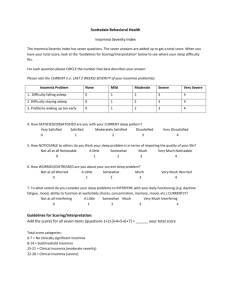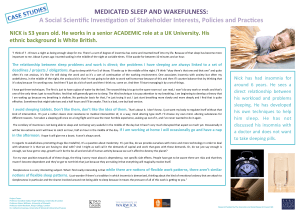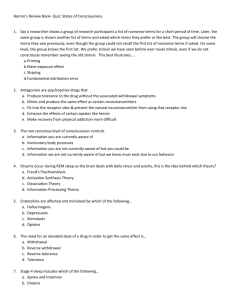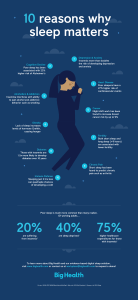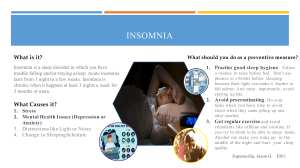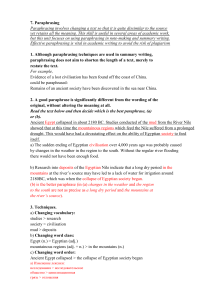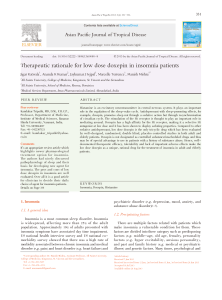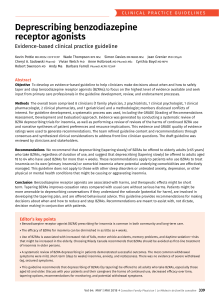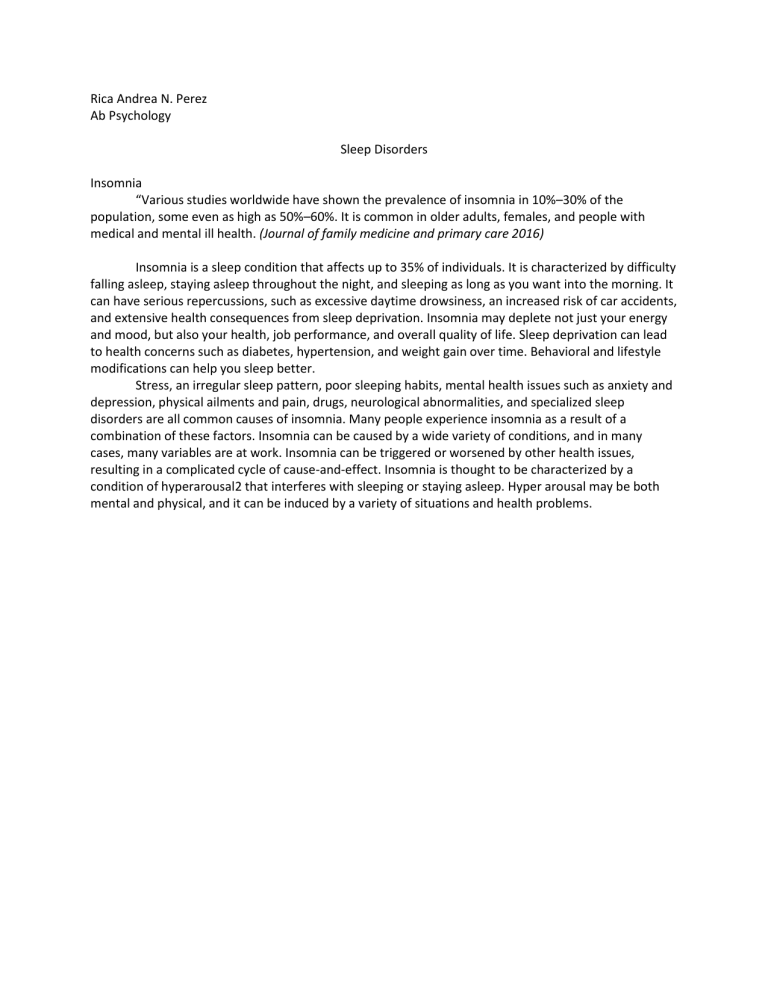
Rica Andrea N. Perez Ab Psychology Sleep Disorders Insomnia “Various studies worldwide have shown the prevalence of insomnia in 10%–30% of the population, some even as high as 50%–60%. It is common in older adults, females, and people with medical and mental ill health. (Journal of family medicine and primary care 2016) Insomnia is a sleep condition that affects up to 35% of individuals. It is characterized by difficulty falling asleep, staying asleep throughout the night, and sleeping as long as you want into the morning. It can have serious repercussions, such as excessive daytime drowsiness, an increased risk of car accidents, and extensive health consequences from sleep deprivation. Insomnia may deplete not just your energy and mood, but also your health, job performance, and overall quality of life. Sleep deprivation can lead to health concerns such as diabetes, hypertension, and weight gain over time. Behavioral and lifestyle modifications can help you sleep better. Stress, an irregular sleep pattern, poor sleeping habits, mental health issues such as anxiety and depression, physical ailments and pain, drugs, neurological abnormalities, and specialized sleep disorders are all common causes of insomnia. Many people experience insomnia as a result of a combination of these factors. Insomnia can be caused by a wide variety of conditions, and in many cases, many variables are at work. Insomnia can be triggered or worsened by other health issues, resulting in a complicated cycle of cause-and-effect. Insomnia is thought to be characterized by a condition of hyperarousal2 that interferes with sleeping or staying asleep. Hyper arousal may be both mental and physical, and it can be induced by a variety of situations and health problems.
